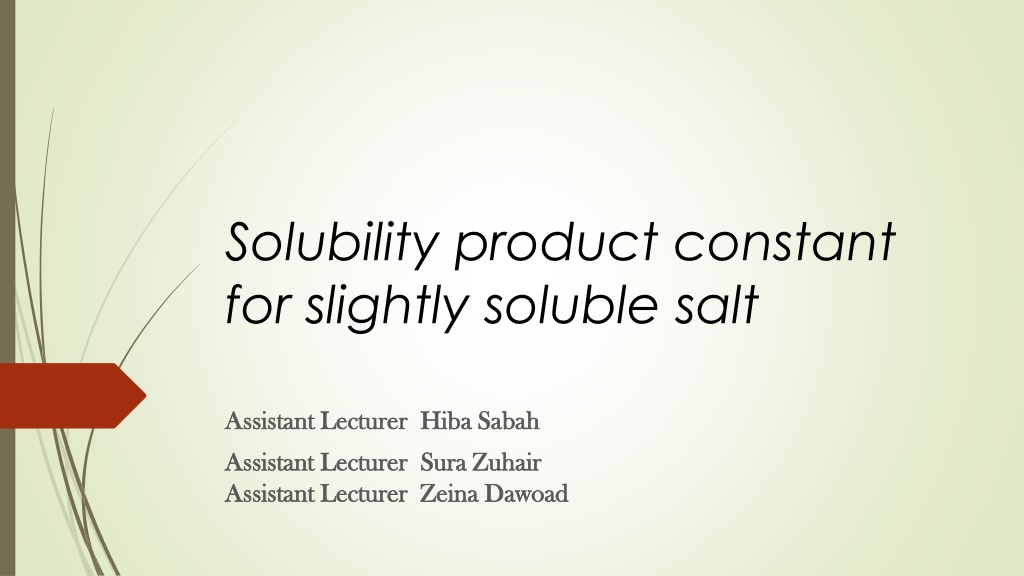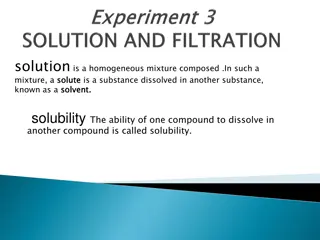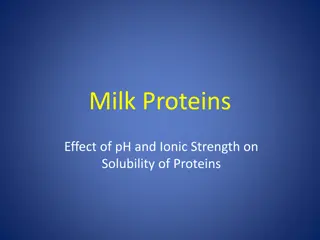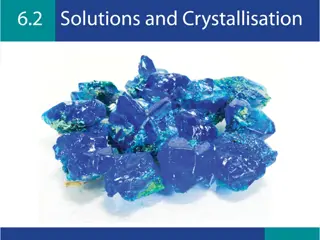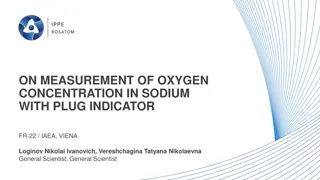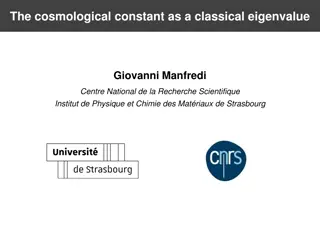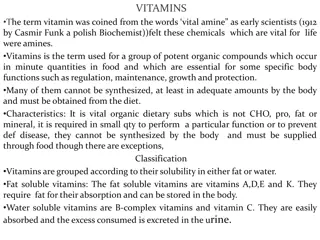Understanding Solubility Product Constant for Slightly Soluble Salts
Solubility product constant (Ksp) is a special constant that describes the solubility of slightly soluble salts like potassium acid tartrate (KHT) and silver chloride (AgCl) in solution. This experiment aims to determine Ksp for KHT and explore factors affecting Ksp such as temperature and common ions. Calculations for solubility of salts like Ca3(PO4)2 and Ag2CO3 are performed to understand their molarity and mass dissolution. The experiment provides insights into how to calculate Ksp values and apply them in determining solubility of salts in aqueous solutions.
Download Presentation

Please find below an Image/Link to download the presentation.
The content on the website is provided AS IS for your information and personal use only. It may not be sold, licensed, or shared on other websites without obtaining consent from the author. Download presentation by click this link. If you encounter any issues during the download, it is possible that the publisher has removed the file from their server.
E N D
Presentation Transcript
Solubility product constant for slightly soluble salt Assistant Lecturer Assistant Lecturer Hiba Hiba Sabah Sabah Assistant Lecturer Assistant Lecturer Sura Assistant Lecturer Assistant Lecturer Zeina Sura Zuhair Zuhair Zeina Dawoad Dawoad
Introduction When slightly soluble electrolyte is dissolved to form saturated solution, the solubility is described by special constant known as solubility product constant Ksp. The aim of this experiment is to determine the Ksp for KHT (potassium acid tartrate). silver chloride (Agcl) is an example of such slightly soluble salt. It is the excess solid in equilibrium with the ion in saturated solution at specific temperature
Factors affecting Ksp 1-Temperature: - Ksp is increased with increasing the temperature. 2- Common ion: - increasing the concentration of any ion in solution is leading to decrease the solubility (except if the ion forms soluble complex with the salt).
We saw that the Ksp for Ca3(PO4)2 is 2.07 1033 at 25 C. Calculate the aqueous solubility of Ca3(PO4)2 in terms of the following: the molarity of ions produced in solution Ca3(PO4)2(s) 3Ca2+(aq) + 2PO43 (aq) Ca3(PO4)2 initial change final [Ca2+] pure solid pure solid [PO43 ] 0 +3x 3x 0 +2x 2x Answer: [PO43 ] = 2.28 10 7 and [Ca2+] = 3.42 10 7.
The solubility product of silver carbonate (Ag2CO3) is 8.46 10 12 at 25 C. Calculate the following: A- the molarity of a saturated solution B- the mass of silver carbonate that will dissolve in 100 mL of water at this temperature Answer: A- 1.28 10 4 M B- 3.54 mg
